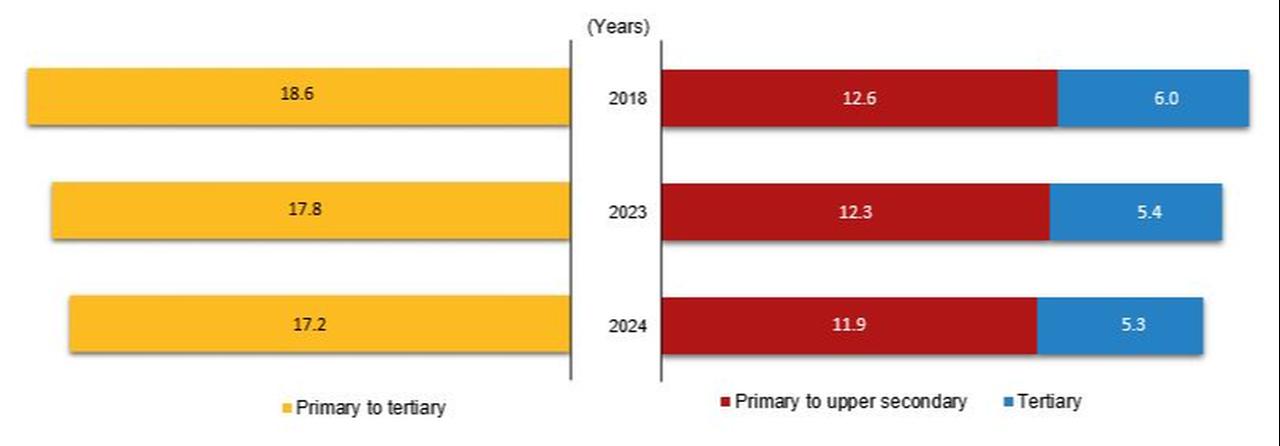
The average time a child in Türkiye is expected to spend in formal education from the start of primary school through the highest possible level of study declined by 3.4% to 17.2 years in 2024, the Turkish Statistical Institute (TurkStat) reported on Monday.
The measure, known as the "mean years of schooling expectancy," reflects the anticipated duration of schooling if current enrollment patterns remain unchanged.
Of the total, 11.9 years are expected to be spent up to the end of secondary education, while preschool education accounts for one-and-a-half years. These projections are designed to illustrate the path of a child entering the education system, assuming age-appropriate progress through each stage.
The data shows that girls in Türkiye are projected to stay longer in school than boys. In 2024, the expected education duration for females was 17.6 years, compared with 16.7 years for males. Both figures represent a decline from 2023, with women’s duration falling by 3% and men’s by 3.8%.
The gender parity index, which measures female-to-male ratios in expected schooling years, rose to 1.05 in 2024. This marks a continued shift in favor of women, up from 0.97 in 2018, suggesting that girls in Türkiye are now expected to complete more years of education than boys.

At the provincial level, the longest expected education duration was recorded in Karabuk, a northern province of Türkiye in the Black Sea region, and Istanbul, both at 19 years.
The indicator is published by the United Nations for all countries and serves as an internationally comparable metric of education prospects. In Türkiye, the figures are also produced at the provincial level and used to guide national education policies.
The measure captures formal education only and does not account for non-formal or vocational training programs.